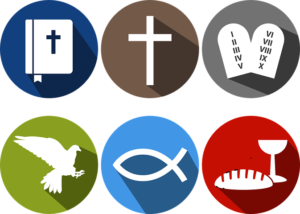In making a case for the Jesus and the New Testament it is important to cover the beginnings of the Christian “Church.” We find this beginning in the New Testament book of Acts. Skeptics will say that the “Church” began with the Roman Catholic Church and the Emperor Constantine and they will use this as a point of attack against Christians, but that assertion is not true. Constantine became a Christian in the fourth century A.D. and it was not until then that Roman Catholicism took root. The origination of believers, or “church,” began with those early followers of Jesus in the first century A.D. and this is Christianity in its purest form.
Introduction to the Book of Acts
The dating of the book of Acts is critical in answering skeptics because they want to date it later than the first century A.D., however, most Biblical scholars will agree that the book of Acts was written sometime between A.D. 61-63, and this can be evidenced by the following:
- We know the 27 books of the New Testament (with the possible exception of Revelation) were written prior to the siege of Jerusalem and the destruction of the Temple in A.D. 70 because no where in these books is this critical and significant event mentioned, especially with Luke (author of both the Gospel of Luke and Acts) who gives careful and accurate historical details concerning everything else that was going on in that time period.
- Luke, in the book of Acts, never mentions the deaths of James (the brother of Jesus and leader of the Jerusalem Church), Peter, and Paul and we know from Church history that they were martyred in the mid to late A.D. 60’s.
- Luke’s Gospel predates his writing of the book of Acts which moves it even closer to the recorded events in time.
- Paul quotes from Luke and wrote as though the Gospel records were common knowledge in the early A.D. 60’s.
- Paul echoed the claims of all the Gospel writers in his Epistles and especially in his letter to the Galatians which is said to be his earliest, dated early to mid A.D. 50’s.
- In Paul’s letter to the Corinthians (also dated in the A.D. 50’s) he gives one of the earliest creeds (1 Corinthians 15) that summarizes the Gospel message and reinforces the fact that the apostles described the eyewitness accounts to him – this creed also shows that people were relating these events even earlier than the writing of Corinthians which could take this record to within a few years of Jesus death and resurrection.
- Luke quoted Mark and Matthew repeatedly, therefore making their Gospel accounts even earlier with many scholars citing Mark’s writings as early as the A.D. 40’s, just a few years after the events.
Watch J. Warner Wallace’s presentation on the evidence for the early dating of the Gospels:
So with that evidence in hand the Christian Church had its beginning with people who were followers of the risen Christ, not members of a “religious” order or political party hundreds of years removed from the events. The first few centuries, prior to the establishment of the organized Church of Rome, are where we find our best example Christianity in practice. There are three places in Luke’s writings that highlight this:
1. In the Gospel of Luke he records Jesus telling His disciples what they should focus on teaching others:
Now He said to them, “These are My words which I spoke to you while I was still with you, that all things which are written about Me in the Law of Moses and the Prophets and the Psalms must be fulfilled.” Then He opened their minds to understand the Scriptures, and He said to them, “Thus it is written, that the Christ would suffer and rise again from the dead the third day, and that repentance for forgiveness of sins would be proclaimed in His name to all the nations, beginning from Jerusalem. You are witnesses of these things. Luke 24:44-48
2. Luke records Jesus’ command to His disciples that we call “The Great Commission:”
He said to them, “It is not for you to know times or epochs which the Father has fixed by His own authority; but you will receive power when the Holy Spirit has come upon you; and you shall be my witnesses both in Jerusalem, and in all Judea and Samaria, and even to the remotest of the earth.” Acts 1:7-8
- The “Great Commission” has been the goal of the Church since the beginning
- Jesus’ words can also be found in Matthew 28:18-20; Mark 16: 15-20; Luke 24:44-49; and John 20:19-23, 21:15-17
3. Luke tells us about three important things these first Christians were doing as they practiced their faith: The Apostles’ teaching (studying our Scripture today), fellowship and breaking of bread (spending time with fellow believers and remembering Jesus’ request that we know as communion), and prayer.
“They were continually devoting themselves to the apostles’ teaching and to fellowship, to the breaking of bread and to prayer.” Acts 2:42
The Hermeneutics of Acts:
Understanding the basics of the book of Acts will help in our comprehension of the context and application. Watch this quick overview of the book of Acts, by Allen Parr, in around five minutes:
Overview of the Hermeneutics:
Author:
Luke
- A well educated and trained physician
- A careful and exact historian
- Traveling companion of the Apostle Paul
- Luke writes this historical narrative from the eyewitness accounts of the Apostles Paul along with many of the closest friends and relatives of Jesus
- Luke also wrote the companion book – the Gospel of Luke
- Luke is also mentioned in Colossians, 2 Timothy and Philemon
Audience:
- Gentile believers, Greeks in particular
- It is addressed to a particular person named Theophilus (lover of God)
Purpose:
- To encourage the faith and outreach of believers in the early Church by providing a continued record of the works of the risen Christ accomplished through the Holy Spirit who was working in and through these early Christians
- To see the outworking of the “Great Commission” as the Church expanded from its beginning in Jerusalem
Background and Historical Setting:
- Culturally it was written in and to a “Greco-Roman” society
- Politically the known world was dominated and controlled by the Roman government under the Emperor(s) “Caesar”
- Religiously there was a basic “freedom of religion” as long as the Caesar was respected as the ultimate authority—this would end very soon in Roman persecution of both Jews and Christians in the late first century AD
- The book of Acts was most likely written from Rome during the imprisonment of the Apostles Paul as Luke was with him during this time
- The book of Acts ends abruptly which is another indication that it was written just prior to the destruction of Jerusalem and the Temple in A.D. 70
Reading the book of Acts:
- Grasp the whole to understand the part—read and outline the whole book first for an overview and to get the big picture.
- As you are reading, remember the author’s purpose as well as the historical and cultural setting—this will give you maximum spiritual impact.
- The main character is the Holy Spirit.
- Be influenced by the godly spiritual role models as demonstrated by the men and women in the early Church — for life application.
Acts is a blueprint for reading the Epistles:
- Acts is the framework for most of the Epistles and gives the history, timeline and background for the context of the Epistles.
- Pay careful attention to the spread of the Church and Paul’s three missionary journeys as he plays a significant role in the “Great Commission” and the establishment of most of the Churches you will read about in the Epistles.
The Book of Acts – General Context:
Major separation of the book—Remember Acts is the historical blueprint for the Epistles:
Chapters 1-12
Focus is on the ministry and leadership of the Apostle Peter
(Read Acts 2:14-36)
Chapters 13-28
Focus is on the ministry and leadership of the Apostle Paul
(Read Acts 9:1-31)
Note: the real leader of the Church in Jerusalem was James, the half brother of Jesus!
The Book of Acts – Outline for Specific Context
The Spread of the Gospel
I. The Church in Jerusalem: Chapters 1 to 8:1
- Ascending of Christ (1:1-11)
- Descending of the Spirit (2:1-39)
- Origin of the Church (2:40-6:7)
- Outreach of the Church (7-8)
- First Christian martyr (Read 7:54 to 8:1)
II. The Church in Judea and Samaria: Chapters 8:1 to 12:25
- The three conversions: Ethiopian Eunuch (A Son of Ham); Saul/Paul, a Jew (A Son of Shem); and Cornelius, a Roman (A Son of Japheth)
- Peter’s testimony: (Read 10:34-43)
- The beginning of persecutions: Stephen stoned; Peter arrested and jailed
- Paul is sent away
- The persecutions begin to spread to the uttermost parts of the known world
III. The Church in the Uttermost Parts/World: Chapters 13 to 28
- Paul’s first missionary journey
Paul and Barnabus go to the island of Cyprus and then to Galatia (Paul’s first Epistle went to the church in Galatia).
- The first Church council at Jerusalem
The answer is given concerning Gentile worship and regulations and this becomes the defense of the universality of the Gospel by the Jewish Apostles.
- Paul’s second missionary journey
Paul and Barnabus part company because of John-Mark and Paul takes Silas, Luke and Timothy to Philippi, Thessalonica, Berea, Corinth, and Athens; Barnabus takes John-Mark to Cyprus.
- Paul’s third missionary journey
The focus is on Ephesus and because of Paul’s influence, the entire province was evangelized and remained a stronghold for Christianity in the Mediterranean world for centuries to come.
- Paul’s three imprisonments
One is in Caesarea the other two are in Rome.
Next week we will look at the political setting and the people who gave their lives for the spread of the Gospel in the early Church.
Bible Study:
In this series we are studying the Gospel of John. For this week read John chapters 16-17, then answer the following questions:
- Why does Jesus say he “needed to go away?” What does Jesus say that the Holy Spirit will do? (16:5-15)
- Summarize what Jesus teaches His disciples in 16:16-30.
- What did Jesus say his disciples would soon do and why? (16:31-33)
- In chapter 17 we find three prayers in one. What are the three parts they can be broken into? How can we apply this example from Jesus’ prayer in our own prayer life?
- Who is Jesus talking about in 17:8 and 17:20? Reflect on how this validates the inspiration, authority, and reliability of the Bible.
Join us next week as we continue our Case for Christ and the New Testament!
——————————————————————————————
You will not find this material in the public school curriculum even though it is based on solid evidence and grounded in research. It is ironic that following the evidence to where it leads stops at the door of our public schools as they will not let a “Divine footprint” in! Join us as we examine evidence for Christianity and learn how to become a thoughtful defender and ambassador of your faith.
Click into the resource page of this website to view many of the top Christian thinkers and apologists along with some of their work; connecting to these types of resources is essential in your Christian growth.
Please let me know what you think: Give feedback, ask questions or send concerns in the comment section of the blog.
Teri Dugan
TeriDugan@truthfaithandreason.com
1 Peter 3:15



Sorry, comments are closed for this post.